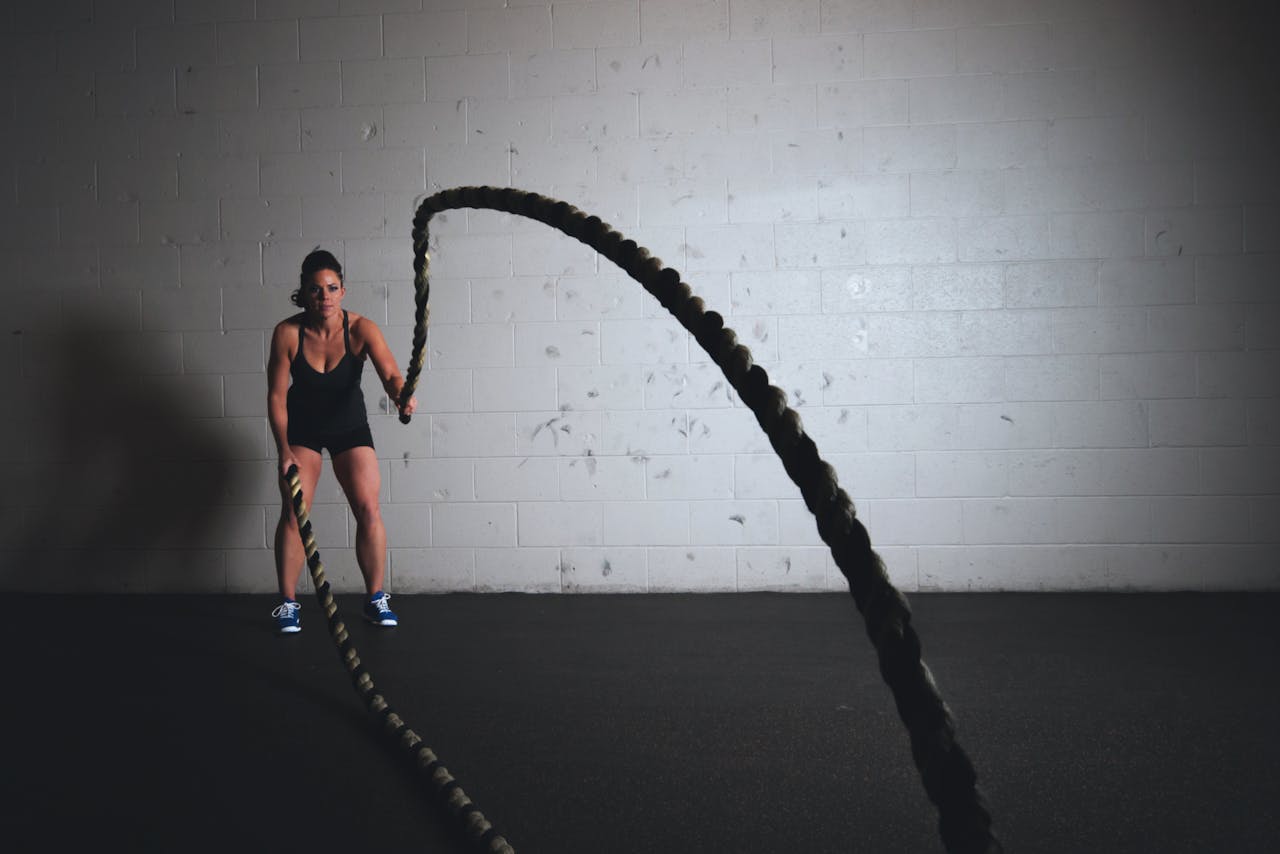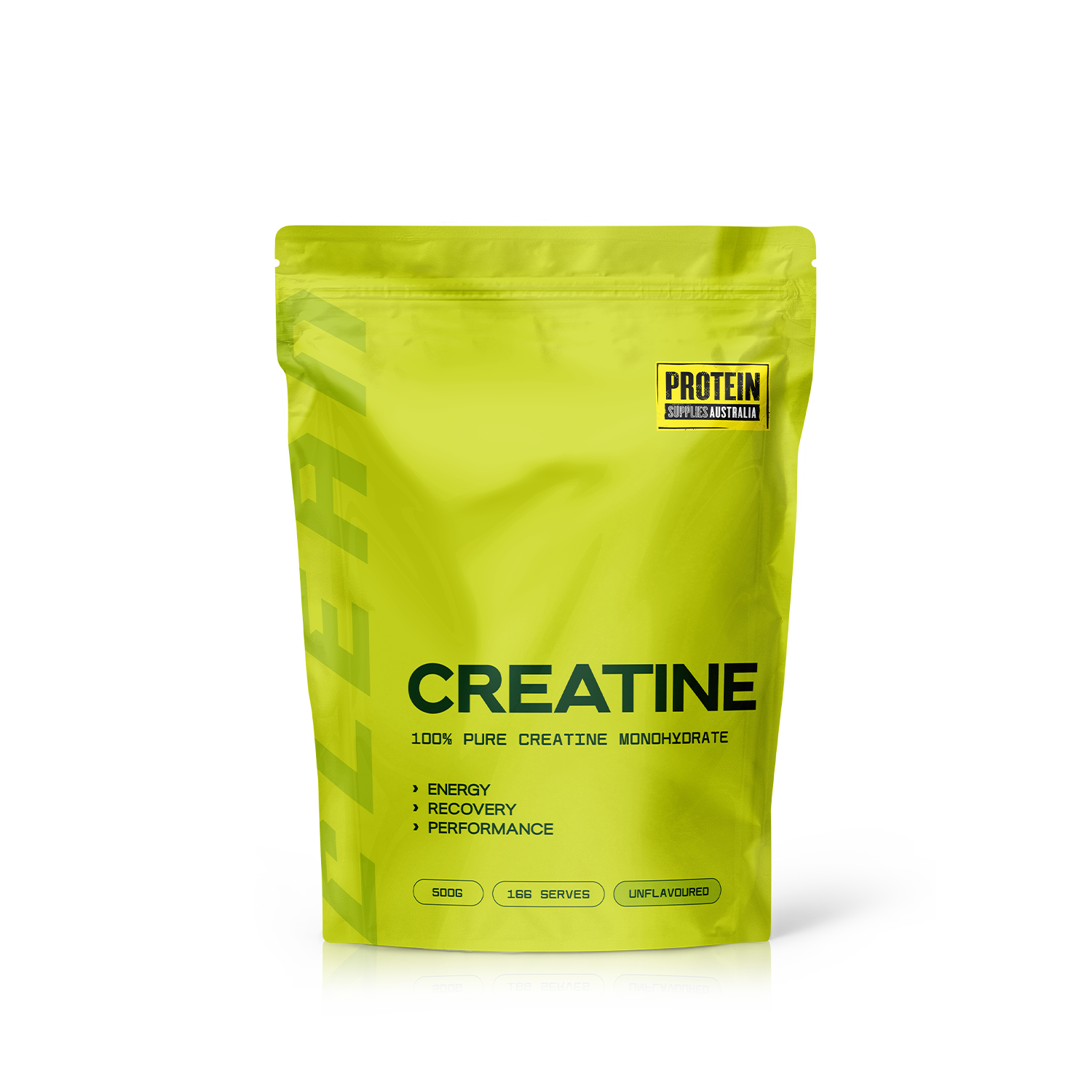Creatine supplements are a cornerstone in sports nutrition and one of the most well-researched dietary supplements for improving exercise performance, muscle strength, and lean body mass. But if you’re taking creatine, you may be wondering: When is the best time to take it—before or after a workout?
This article breaks down the science and expert recommendations behind creatine pre workout, post workout, and rest day strategies to help you maximise your fitness goals.
What is Creatine and Its Benefits
Creatine is a naturally occurring substance found predominantly in muscle tissue and is also available as a dietary supplement in the form of creatine monohydrate. It plays a pivotal role in providing energy to muscles, especially during high-intensity activities such as weightlifting and sprinting. When taken as a supplement, creatine has been extensively researched and shown to offer numerous benefits.
Why Take Creatine?
Creatine is a naturally occurring compound formed from three amino acids—glycine, arginine, and methionine. It helps produce adenosine triphosphate (ATP), the primary energy molecule in your muscles during short bursts of high-intensity activity like sprinting, heavy lifting, and HIIT-style workouts.
It occurs naturally in small amounts in foods like red meat and seafood, but the levels are often too low to saturate your muscles adequately. This is where creatine supplementation steps in. Supplementing with creatine monohydrate increases muscle creatine stores, boosting your ability to train harder, recover faster, and achieve better results.
In addition to creatine, amino acid supplements play a crucial role in muscle protein synthesis and overall strength improvements, especially when taken around exercise.
Several studies have shown that supplementing with creatine can lead to significant improvements in muscle mass, strength gains, training volume, and exercise performance. Some studies have also noted benefits in cognitive function and reduced mental fatigue, especially in older adults or during periods of sleep deprivation.
Creatine Pre Workout: Pros and Cons
Many gym goers, athletes, and fitness enthusiasts prefer adding creatine to a pre workout supplement or pre workout mixes alongside ingredients like beta alanine, l citrulline, nitric oxide boosters, or caffeine. The idea is to enhance performance, increase energy levels, and maximise training intensity.
Pros of taking creatine pre workout:
-
Increased blood flow during exercise can help shuttle nutrients like creatine to the muscles
-
Supports higher energy production via ATP resynthesis
-
Combines well with pre workout supplementation strategies to improve training session output
-
Convenient to include in pre workout formulas
-
Enhances energy, endurance, and performance during workouts through the use of pre workouts
Cons:
-
Some pre workout ingredients, especially in stimulant-heavy blends, may delay or inhibit creatine absorption
-
Caffeine in high doses has been speculated to reduce creatine’s cellular uptake (though research remains inconclusive)
-
If taken on an empty stomach, some individuals report mild bloating or discomfort
That said, for those already using pre workout supplements, combining creatine at this time is practical and effective.
Creatine Post Workout: What the Research Says
Recent data from the International Society of Sports Nutrition indicates that taking creatine post workout may lead to slightly superior results in muscular strength and lean muscle gains.
Why post workout creatine may be optimal:
-
After training, your muscle cells are more receptive to nutrients due to increased blood flow and improved insulin sensitivity
-
Pairing creatine with a post workout protein shake and carbs can significantly enhance muscle creatine uptake
-
May improve glycogen replenishment and reduce muscle recovery time
A study examined two groups of resistance-trained men: one group took creatine pre workout, and the other post workout. The post workout group gained more lean body mass and strength over the 4-week period.
Another 10-week study split participants into two groups. One took a creatine-containing supplement immediately before and after training, while the other took it in the morning and evening. The group supplementing around their workouts experienced greater improvements in strength training outcomes.
Rest Days: Timing Still Matters
Many people underestimate the importance of creatine supplementation on rest days. However, maintaining elevated creatine levels is essential for sustained benefits.
Best approach for rest days:
-
Timing is less critical, but consistency matters
-
Take your maintenance dose (3–5g) daily, ideally with a balanced meal that includes protein and carbohydrates
-
Doing so supports better creatine absorption and may reduce minor gastrointestinal discomfort some experience with creatine
Even when not training, the benefits of consistent creatine use include ATP regeneration, cellular hydration, and improved recovery between sessions.
Loading Phase vs Maintenance Dose
When starting creatine, many athletes begin with a loading phase of 20g/day (divided into 4 doses) for 5–7 days. This helps saturate your muscle creatine stores rapidly.
Key benefits of loading:
-
Faster increase in intramuscular creatine
-
Potential for quicker strength and energy improvements
-
May speed up results in early training phases
However, some individuals may experience minor side effects such as water retention or stomach upset. For these users, skipping the loading phase and sticking to a daily dose of 3–5g can still yield results—just more gradually.
Dosage and Safety Considerations
Recommended dosages:
The recommended dosage of creatine can vary based on individual goals and needs. Typically, a loading phase is recommended to quickly saturate the muscles with creatine.
Should You Mix Creatine with Other Ingredients?
Absolutely—especially when the goal is to enhance muscle recovery, strength gains, or nutrient delivery. Many pre workout mixes and post workout formulas include ingredients that complement creatine’s function.
Effective combinations:
-
Creatine + Protein + Carbs: Boosts creatine uptake and supports muscle protein synthesis
-
Creatine + L-Citrulline or L-Arginine: May enhance nitric oxide production and blood flow
-
Creatine + Beta Alanine: Helps delay fatigue and increase training volume
Just be cautious of pre workout products that contain high levels of caffeine, artificial sweeteners, or unnecessary fillers, as these may reduce the effectiveness or create digestive discomfort.
Final Verdict: When Is the Best Time to Take Creatine?
|
Timing Option |
Best For |
Notes |
|---|---|---|
|
Pre Workout |
Convenience, combined supplements |
Works well in pre workout supplements if dosed properly |
|
Post Workout |
Exercise performance, recovery, gains |
Backed by research for improved muscle strength and mass |
|
Rest Days |
Maintenance |
Take with food to support nutrient absorption |
To support muscle strength, increase strength, and optimise recovery, take creatine either pre or post workout, depending on your schedule and what you’re already consuming. Just be sure to take it consistently.
Key Takeaways
-
Creatine is one of the safest, most effective supplements for athletes, strength training, and general fitness goals
-
Creatine pre workout supports performance but may have minor absorption delays
-
Creatine post workout is supported by research for better recovery and strength outcomes
-
Take it daily—even on rest days—to maintain high levels in the muscles
-
Pair with protein, carbs, or amino acids for enhanced results
-
Loading may speed up results, but is not required for effectiveness
Stay consistent, track your progress, and combine creatine with smart training and a whole-foods diet to unlock its full potential.



Creatine Pills vs Powder: Which Is Better for Your Fitness Goals?
Does Creatine Help with Fat Loss and Weight Loss?